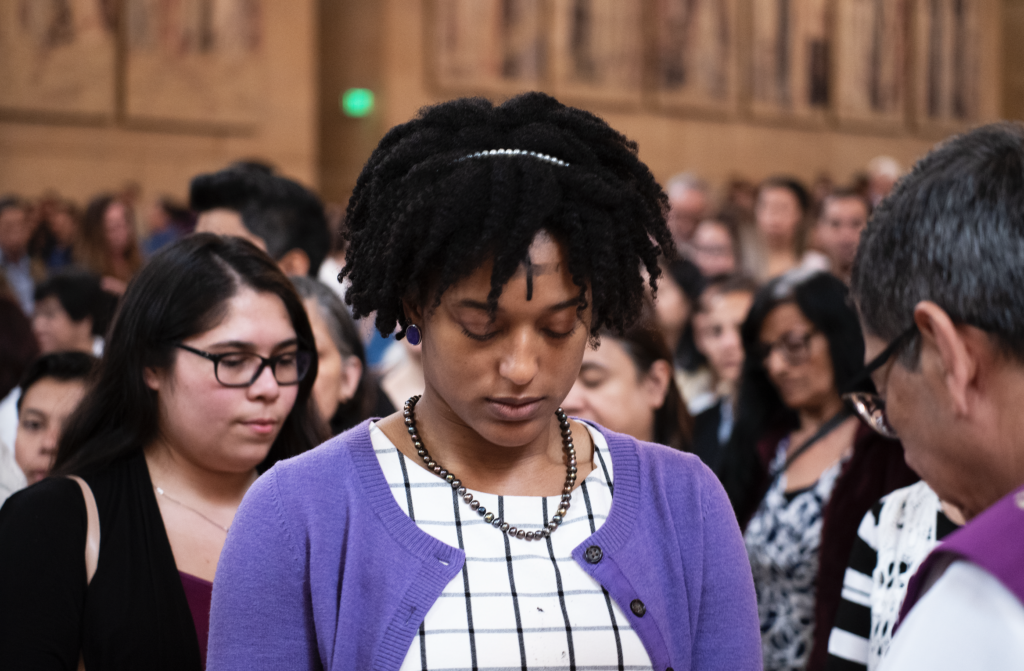I was moved by the accounts of Pope Francis’ recent visit to South Sudan.
In a country still in the grips of civil war, where hundreds of thousands have been killed and millions made refugees, the pope appealed to those on both sides for forgiveness and reconciliation.
In his final homily, he said, “Let us overcome the dislikes and aversions that over time have become chronic and risk pitting tribes and ethnic groups against one another. Let us learn to apply the salt of forgiveness to our wounds; salt burns but it also heals. Even if our hearts bleed for the wrongs we have suffered, let us refuse … to repay evil with evil. … Let us accept one another and love one another with sincerity and generosity, as God loves us.”
This is a beautiful, prophetic prayer for the conversion of hearts. And I could not help thinking: Our world seems to be suffering from a lack of forgiveness.
We can see this in our politics, in our social media, and can see it in the hearts of people we know. We can see it in our own hearts. There are too many divisions in our society, too much bitterness and holding on to old hurts and grudges.
Lent is the season of forgiveness. And as the pope recognizes, forgiveness begins in our hearts.
The 40 days of Lent are a journey to the cross, where Jesus once again speaks to our hearts: “This is my blood of the covenant, which is poured out for many for the forgiveness of sins.”
This is why Jesus was born, that we might know salvation in the forgiveness of our sins. He died with those words on his lips: “Father, forgive them.” This is the mission that he gave his Church, to proclaim forgiveness of sins in his name to all the nations and to every heart.
And Jesus told us that to follow him means that we must be like him. The love that he commands requires that we be men and women of forgiveness.
The prayer that he taught us is astonishing: “Forgive us our trespasses, as we forgive those who trespass against us.”
Every one of us needs to know forgiveness, to know that our sins are forgiven by God. But we cannot know God’s forgiveness unless we practice forgiveness in our own lives.
Jesus understood that when we refuse to forgive, we close our hearts, not only to our brothers and sisters, but to God.
“This outpouring of mercy,” the Catechism says, “cannot penetrate our hearts as long as we have not forgiven those who have trespassed against us.”
That is the key. We can forgive the sins of others only when we realize that we are sinners, too, and that we also are in need of forgiveness.
When his disciples asked him how often they must forgive, Jesus told them that great parable of the unforgiving servant.
We know the story, because it is the human story. The servant owed a great debt to his master, and out of mercy the master forgave his debt. But the servant did not extend that same mercy to his fellow servants.
The point is that the mercy that we hope for from God we must express in deeds of mercy that we do for our brothers and sisters.
None of this is easy. Jesus knows that, too. Forgiveness is costly, it requires a conversion of our hearts. It is impossible without his grace.
But we have the power to forgive because in him we have been forgiven. In Jesus, we can be merciful as our Father is merciful.
As St. Paul said, we can be “imitators of God,” forgiving one another as God in Christ has forgiven us.
Let us make this Lent a time for learning forgiveness, and for living forgiveness.
In our prayer this Lent, let us pray from the heart, “Forgive us our trespasses,” returning to our Father like the prodigal son, confessing our sins, our need for his mercy.
In our fasting, let us “fast” from dwelling on old hurts and resentments, and harboring grudges.
In our almsgiving this Lent, let us be generous in trying to give others the benefit of the doubt. Let us be quick and cheerful in forgiving the little offenses, the disappointments, and aggravations of daily life.
One of the saints said, “To forgive with one’s whole heart, and with no trace of a grudge will always be a wonderfully fruitful disposition to have. That was Christ’s attitude on being nailed to the Cross: ‘Father, forgive them, they know not what they are doing.’ From this came your salvation and mine.”
Pray for me, and I will pray for you.
And as we enter into our Lenten journey, let us entrust ourselves to the Blessed Virgin Mary, the Mother of Mercy.

